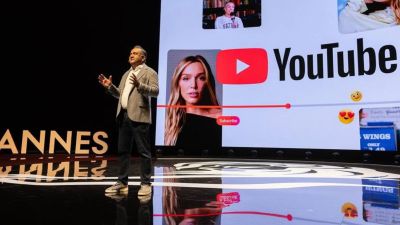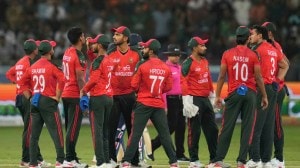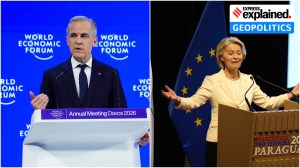For students, 1989 not even a memory
For Yu Yang, a mop-haired biology major, the small notice posted this week on Beijing University8217;s website about the death of a former ...

For Yu Yang, a mop-haired biology major, the small notice posted this week on Beijing University8217;s website about the death of a former Communist Party leader seemed like an irrelevant historical footnote.
Growing up, Yu, now 21, barely knew about Zhao Ziyang, except that he had 8216;8216;played a prominent role in 1989.8217;8217; And Yu acknowledged that he barely knew about 1989, except that students had protested at Tiananmen Square, and he had heard that soldiers fired into the crowds to end the demonstrations.
But Yu, an aspiring scientist, described that as hearsay. 8216;8216;Rumors say so,8217;8217; he said of a bloody crackdown witnessed by a worldwide television audience outside China, 8216;8216;but I need a lot of evidence to believe it.8217;8217;
If the Chinese government can help it, he may never see that evidence.For years, the Communist Party has awaited Zhao8217;s death with trepidation, fearing protests or riots. Purged for sympathizing with the students, then placed under house arrest in Beijing for almost 16 years, he became a martyr to a generation of Chinese for whom Tiananmen remains an indelible scar.
But for younger Chinese, who did not witness those events, Zhao is a virtual nonentity, banished from history books and the state-controlled media. At Beijing University, a focal point of political dissent in 1989, his death scarcely seemed to register with the generation of students who were children when the massacre happened.
Some like Yu were simply ill-informed, knowing about it only in vague, often inaccurate, terms. Others, frightened, knew they should change the subject.
Asked if any event in the news had seemed significant this week, a student replied, 8216;8216;You mean the Australian Open?8217;8217; When his visitor gave him a quizzical look, he smiled almost imperceptibly. 8216;8216;Oh, you mean Zhao,8217;8217; he said.
The government8217;s concern about the lingering anger over Tiananmen 8212; and the potential that it could still be the match that lights new protests 8212;8212; explains why the official response was to increase security in campuses and step up monitoring of dissidents after Zhao died on Monday.
Jiao Guobiao, an outspoken journalism teacher at Beijing University, said political speech was already tightly monitored long before Zhao8217;s death, a fact that influenced the muted response by students.
8216;8216;8220;It8217;s not that they don8217;t care,8221; Jiao said. 8216;8216;It8217;s that they don8217;t dare care. Any student who shows a concern for politics will be discriminated against.8221; Jiao himself is a telling example. Last year, he wrote a scathing indictment of the government8217;s propaganda department. Since then, he has remained on the faculty but not been allowed to teach.
Roger Jie, 21, a junior, laughed when asked if politics played a major role in campus life. 8216;8216;Very nonpolitical,8217;8217; he said. 8216;8216;Neutralized, in fact, pretty neutral. Students are used to not talking about it.8217;8217;
Jie, who grew up in Guangzhou, said Tiananmen was rarely discussed at his high school. Now, he said, the passage of time and economic progress in China have made Tiananmen seem less relevant to his life. 8216;8216;It was long ago, and there hasn8217;t been much news about Zhao for 10 years or longer,8217;8217; he said. Asked if he now felt free in China, Jie said: 8216;8216;To a degree, it is free enough for me,8217;8217; he said.
Xu Youyu, a liberal political theorist at the Chinese Academy of Social Sciences, said the blackout of information about Tiananmen meant that many younger people were ignorant about what happened in 1989.
In interviews with students at an undergraduate dorm, several were not aware that Zhao had been general secretary of the Communist Party or that he had been under house arrest. Other students offered a softer gloss on the government8217;s role in the crackdown.
8216;8216;Many people left safely,8217;8217; said a 21-year-old student from Anhui Province who asked not to be identified.Did the soldiers fire on the students? 8216;8216;It8217;s really not clear,8217;8217; the student said. 8216;8216;I heard the soldiers fired back when they were attacked.8217;8217;
His friend chimed in. 8216;8216;I don8217;t care too much about politics,8217;8217; he said. What does he care about? 8216;8216;Soccer,8217;8217; he answered.
- 01
- 02
- 03
- 04
- 05






























